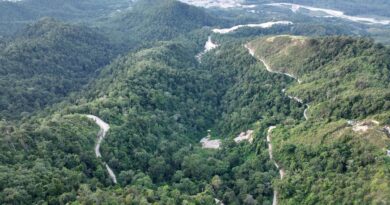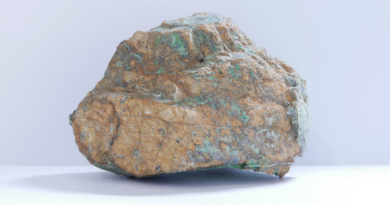Streamlining Mining Operations: Understanding e-RKAB and Its Impact
Have you ever wondered how mining companies secure their operational permits? The process, often complex and bureaucratic, is now being streamlined through digitalization, particularly with the implementation of e-RKAB.
This article delves into how e-RKAB is transforming the mining sector in Indonesia.
The e-RKAB Revolution: A New Era for Mining Permits
The Ministry of Energy and Mineral Resources (ESDM) is committed to upholding its institutional duties and functions according to the existing laws. A significant part of this commitment involves the digitalization of the mining permit process, specifically through the e-RKAB system, according to the Ministry’s Press Released issued on Dec 27, 2024.
This system is designed to issue approval for the Work Plan and Budget (Rencana Kerja dan Anggaran Biaya or RKAB) for mineral and coal operations. The e-RKAB system, as mandated by Government Regulation (PP) No. 25 of 2024 and Minister of ESDM Regulation (Permen) No. 10 of 2023, allows for a three-year operational period approval.
This digital approach ensures accountability and adheres to principles of good governance.
Key Changes and Simplifications
The implementation of e-RKAB signifies a move towards simplification and efficiency in the administrative processes for mining companies. The goal is to provide certainty for businesses without compromising the crucial evaluation process. To ensure effective implementation, Permen ESDM No. 15 of 2024 was issued to further refine the procedures for preparing, submitting, and approving RKAB, as well as to facilitate changes in feasibility studies.
Authority and Delegation
The authority to issue RKAB lies with the Director General of Minerals and Coal (Dirjen Minerba), which is delegated by the Minister of ESDM. This delegation is permissible under the Law No. 30 of 2014 on Government Administration, which allows for attribution, delegation, or mandate. The delegation to Dirjen Minerba via ministerial regulations is considered appropriate within the legal framework. It is also seen as preventing potential overreach in the material content of Government Regulations or Presidential Regulations, which typically govern higher-level governmental administrative structures.
Progress and Results
The implementation of the e-RKAB system has demonstrated considerable progress. As of December 26, 2024, the Directorate General of Minerals and Coal (Ditjen Minerba) has processed 830 permit applications for mineral commodities for the 2024-2026 period.
- Of these, 336 permits were approved for production, 224 were approved without production, and 262 were rejected.
- The approvals included commodities such as nickel (292), tin (49), bauxite (71), and others.
- For coal, Ditjen Minerba completed 927 permits, with 736 approved, 66 rejected, and 120 returned for revision.
Additionally, the system is continuously updated, including the processing of changes to RKAB. As of December 20, 2024, out of 120 revised RKAB documents, 79 were approved, 19 were rejected, and 17 were returned for further revisions.
Enhancing Transparency and Accountability
The Ministry of ESDM is actively engaging with various stakeholders, including the Ombudsman RI, to enhance transparency and accountability within the mining sector. The improvements in regulation are intended to ensure that the RKAB process is transparent and provides legal certainty for all parties involved. These efforts are especially crucial following the central government’s move to take over approximately 1,900 permits from provincial governments. These changes require adjustments to comply with national regulations.
Integration and Future Outlook
The Ministry is also collaborating with various ministries and Bank Indonesia to develop the Mineral and Coal Information System (SIMBARA). This system aims to integrate the oversight of Non-Tax State Revenue (PNBP) and the mineral and coal trade. SIMBARA covers the entire mining governance process, from single identity verification to export clearances and revenue collection. Furthermore, the Ministry is in the final stages of launching Minerba One, a unified digital system that consolidates data, evaluation, approval, monitoring, and oversight of mineral and coal governance. This integrated system is expected to be launched in early 2025.
Key Takeaways
- The e-RKAB system is a digital approach to issuing mining permits, designed to enhance efficiency and transparency.
- The system provides a three-year operational approval period and simplifies administrative processes.
- Authority for RKAB issuance is delegated to the Director General of Minerals and Coal (Dirjen Minerba) by the Minister of ESDM.
- Digitalization helps streamline the evaluation and approval processes, as shown by the processing of numerous permits.
- The Ministry of ESDM is committed to ongoing improvements, including collaboration with various ministries and agencies to create integrated systems like SIMBARA and Minerba One.
Conclusion:
The implementation of the e-RKAB system, along with other digital initiatives like SIMBARA and Minerba One, is a significant step towards modernizing the mining sector in Indonesia. By streamlining the permitting process, ensuring transparency, and promoting accountability, these measures are set to foster a more sustainable and efficient industry, benefiting both businesses and the national economy. The ongoing efforts to enhance regulatory processes indicate a commitment to a well-governed and responsible mining sector.
Frequently Asked Questions on RKAB and Mining Governance in Indonesia
- What is RKAB and what does its approval process entail?
RKAB stands for Rencana Kerja dan Anggaran Biaya (Work Plan and Budget). It’s a crucial document for mining companies in Indonesia, outlining their operational plans and financial budget. The approval process, now largely digital via the e-RKAB system, is mandated for operations production stages, granting permission for a 3-year period. The process is governed by several regulations, notably Government Regulation (PP) No. 25 of 2024, which amends PP No. 96 of 2021, and Minister of Energy and Mineral Resources (Permen ESDM) No. 10 of 2023 and its amendment Permen ESDM No. 15 of 2024. The key goal is to simplify administration while ensuring the substance of evaluation is maintained, giving business certainty for mining operations. - Who is responsible for approving RKAB, and how is that authority delegated?
The Minister of ESDM holds the authority to approve RKAB as stipulated by Article 177 of PP No. 96 of 2021. However, this authority is delegated to the Director General of Minerals and Coal (Dirjen Minerba) or their acting representatives, through ministerial regulations, like Permen ESDM No. 7 of 2020 and Permen ESDM No. 10 of 2023. This delegation aligns with the administrative law framework that allows for authority to be transferred via attribution, delegation, or mandate. - Why is the RKAB approval process being updated?
The RKAB approval process has been improved to provide more business certainty and streamline administration for mining companies. These changes also account for the transfer of around 1,900 permits from provincial to central government. This transfer necessitated adjustments to ensure compliance with national regulations. The updated system aims to be more transparent and accountable, incorporating feedback and recommendations from various parties, including the Ombudsman. - What is the role of e-RKAB in the approval process?
e-RKAB is a digital platform developed to handle the submission and approval of RKABs. This system streamlines the process and is meant to enhance efficiency and transparency, moving away from traditional methods. The digital approach also aligns with the government’s efforts towards digitization and improved governance. - How many RKAB applications have been processed, and what are the outcomes?
As of December 26, 2024, the Directorate General of Minerals and Coal (Ditjen Minerba) has completed processing 830 RKAB applications for mineral commodities for the 2024-2026 period. Of these, 336 were approved for production, 224 were approved without production, 262 were rejected, 6 are under evaluation, and 2 are pending feedback. For coal, 927 permits were processed: 736 approved, 66 rejected, 120 returned and 5 under further evaluation. - What commodities are most frequently approved under RKAB?
The most frequently approved commodities under RKAB include nickel (292 permits), tin (49 permits), bauxite (71 permits), galena (6 permits), gold and its byproducts (54 permits), iron (52 permits), copper (8 permits), and other miscellaneous minerals (28 permits). For coal, 736 permits were approved. - What is SIMBARA and how does it improve mining governance?
SIMBARA, or the Mineral and Coal Information System, is an integrated platform developed in collaboration with multiple ministries (Finance, Trade, Transportation) and Bank Indonesia. It aims to improve the entire mining management process by integrating applications for monitoring Non-Tax State Revenue (PNBP) and mineral and coal trading. It covers a range of activities from the single identification of taxpayers, mining permits, sales plans, sales verification, exports, clearance at ports, and the payment of PNBP. This system also aims to support the government’s efforts to improve collection of revenues from mining activities. - What is Minerba One and what are its objectives?
Minerba One is an integrated digital system currently in its final stages of development, slated for launch in early 2025. It is designed to unify all processes related to the governance of minerals and coal, from data collection and evaluation to approval, monitoring, guidance, and digital supervision. The goal is to streamline operations, enhance transparency, and provide a comprehensive digital ecosystem for the entire minerals and coal sector.

